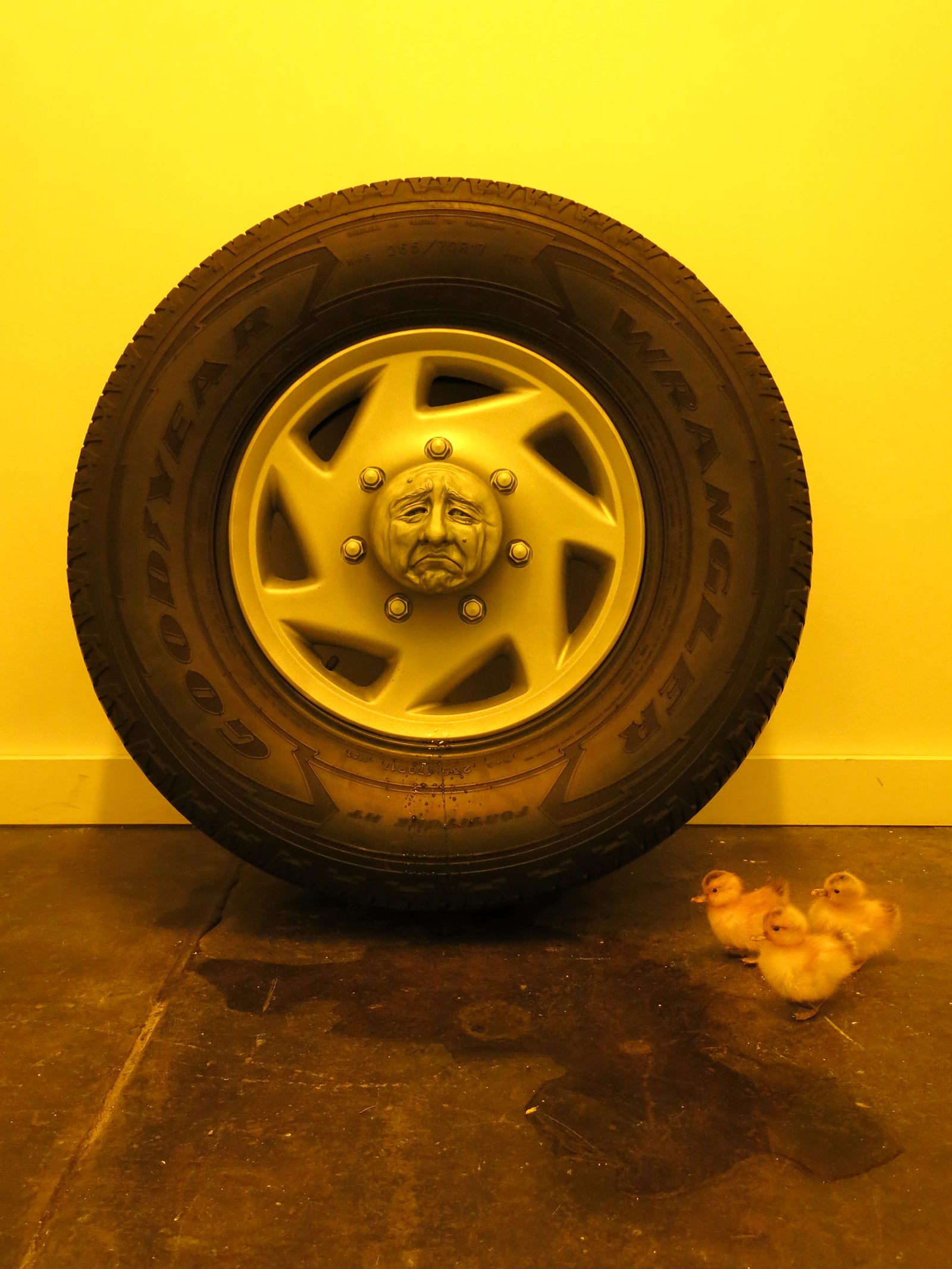 The Four Horsemen (Lonely), Cold-cast urethane, glass eyes, modified Goodyear Tire, cast and pigmented RTV rubber, taxidermy ducklings, tubing for water element, 2022
The Four Horsemen (Lonely), Cold-cast urethane, glass eyes, modified Goodyear Tire, cast and pigmented RTV rubber, taxidermy ducklings, tubing for water element, 2022
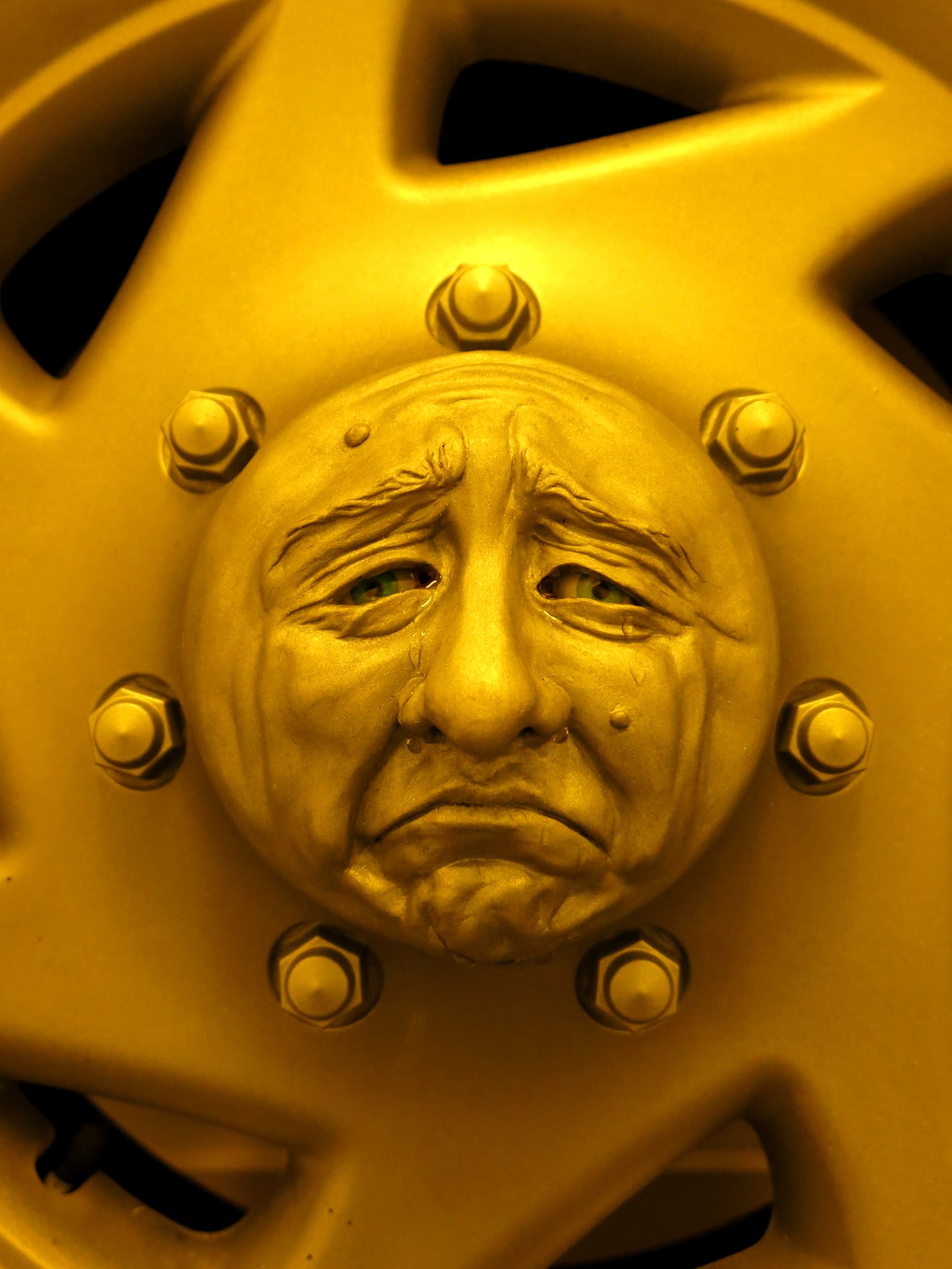 The Four Horsemen (Lonely) detail, Cold-cast urethane, glass eyes, modified Goodyear Tire, cast and pigmented RTV rubber, taxidermy ducklings, tubing for water element, 2022
The Four Horsemen (Lonely) detail, Cold-cast urethane, glass eyes, modified Goodyear Tire, cast and pigmented RTV rubber, taxidermy ducklings, tubing for water element, 2022
.jpg) The Four Horsemen (Lonely) detail, Cold-cast urethane, glass eyes, modified Goodyear Tire, cast and pigmented RTV rubber, taxidermy ducklings, tubing for water element, 2022
The Four Horsemen (Lonely) detail, Cold-cast urethane, glass eyes, modified Goodyear Tire, cast and pigmented RTV rubber, taxidermy ducklings, tubing for water element, 2022
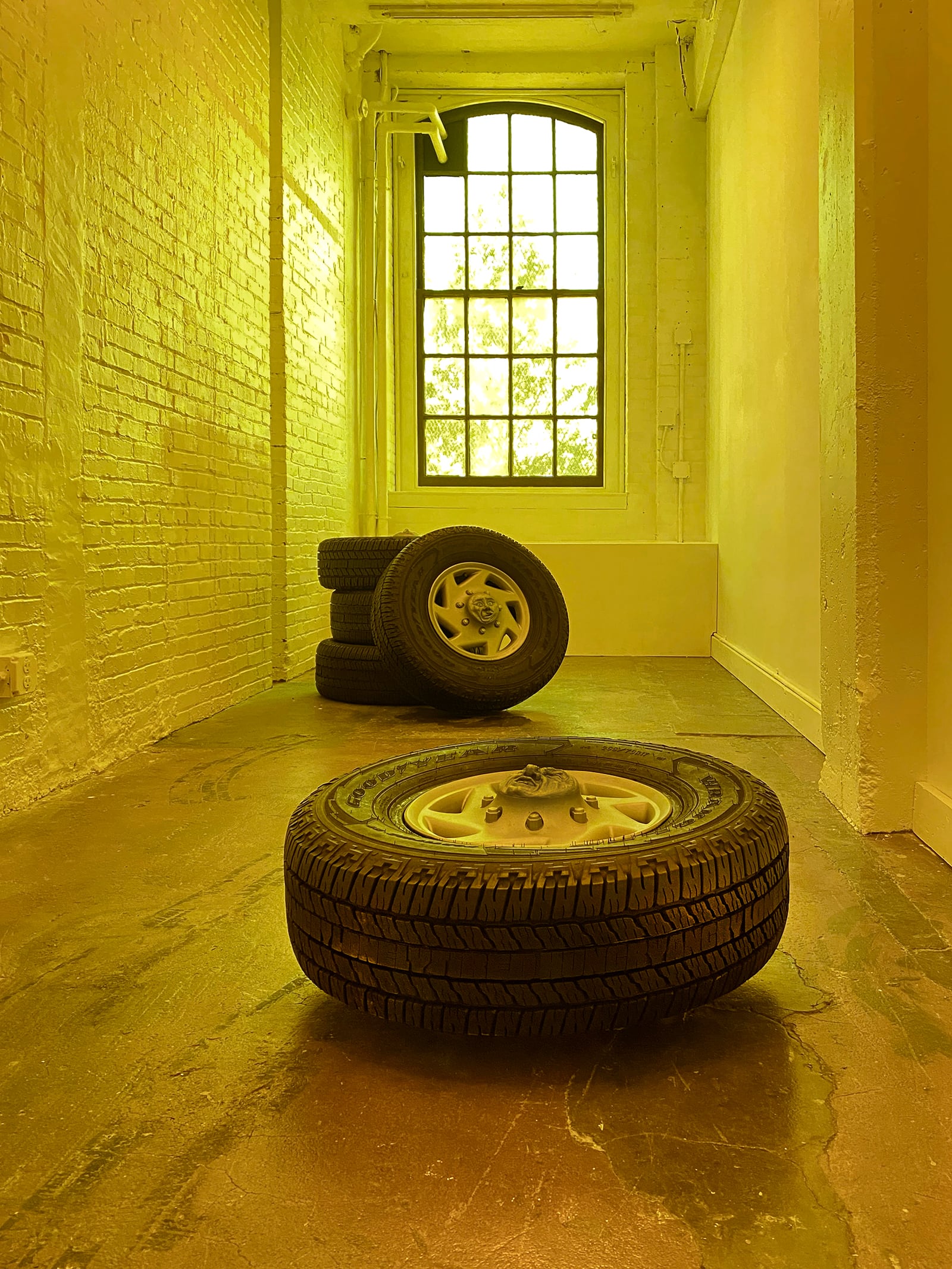 Installation view
Installation view
 The Four Horsemen (Angry), Cold-cast urethane, modified Goodyear Tire, cast and pigmented RTV rubber, motorized turntable, 2021-2022
The Four Horsemen (Angry), Cold-cast urethane, modified Goodyear Tire, cast and pigmented RTV rubber, motorized turntable, 2021-2022
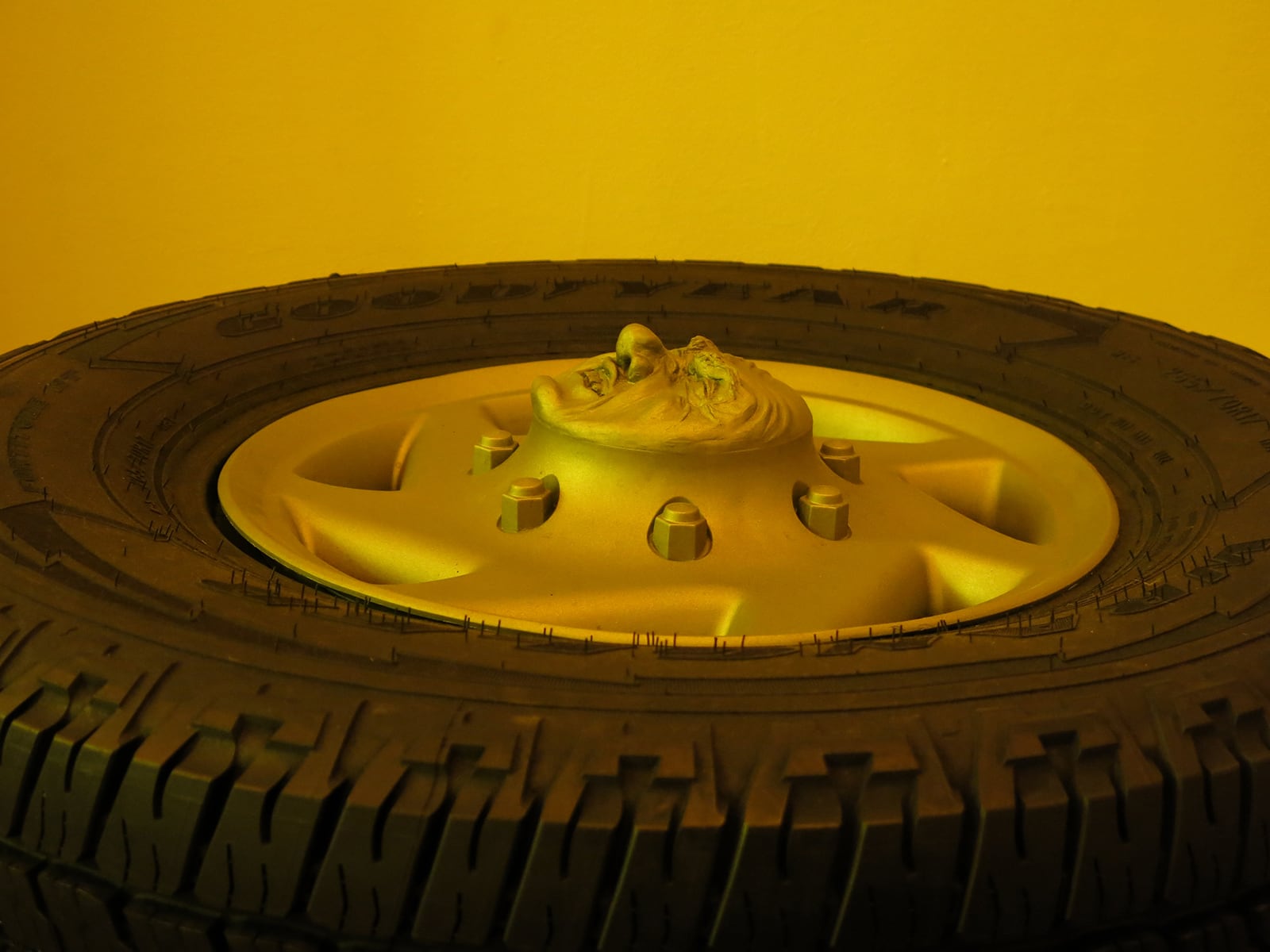 The Four Horsemen (Angry) detail, Cold-cast urethane, modified Goodyear Tire, cast and pigmented RTV rubber, motorized turntable, 2021-2022
The Four Horsemen (Angry) detail, Cold-cast urethane, modified Goodyear Tire, cast and pigmented RTV rubber, motorized turntable, 2021-2022
.jpg) The Four Horsemen (Angry) detail, Cold-cast urethane, modified Goodyear Tire, cast and pigmented RTV rubber, motorized turntable, 2021-2022
The Four Horsemen (Angry) detail, Cold-cast urethane, modified Goodyear Tire, cast and pigmented RTV rubber, motorized turntable, 2021-2022
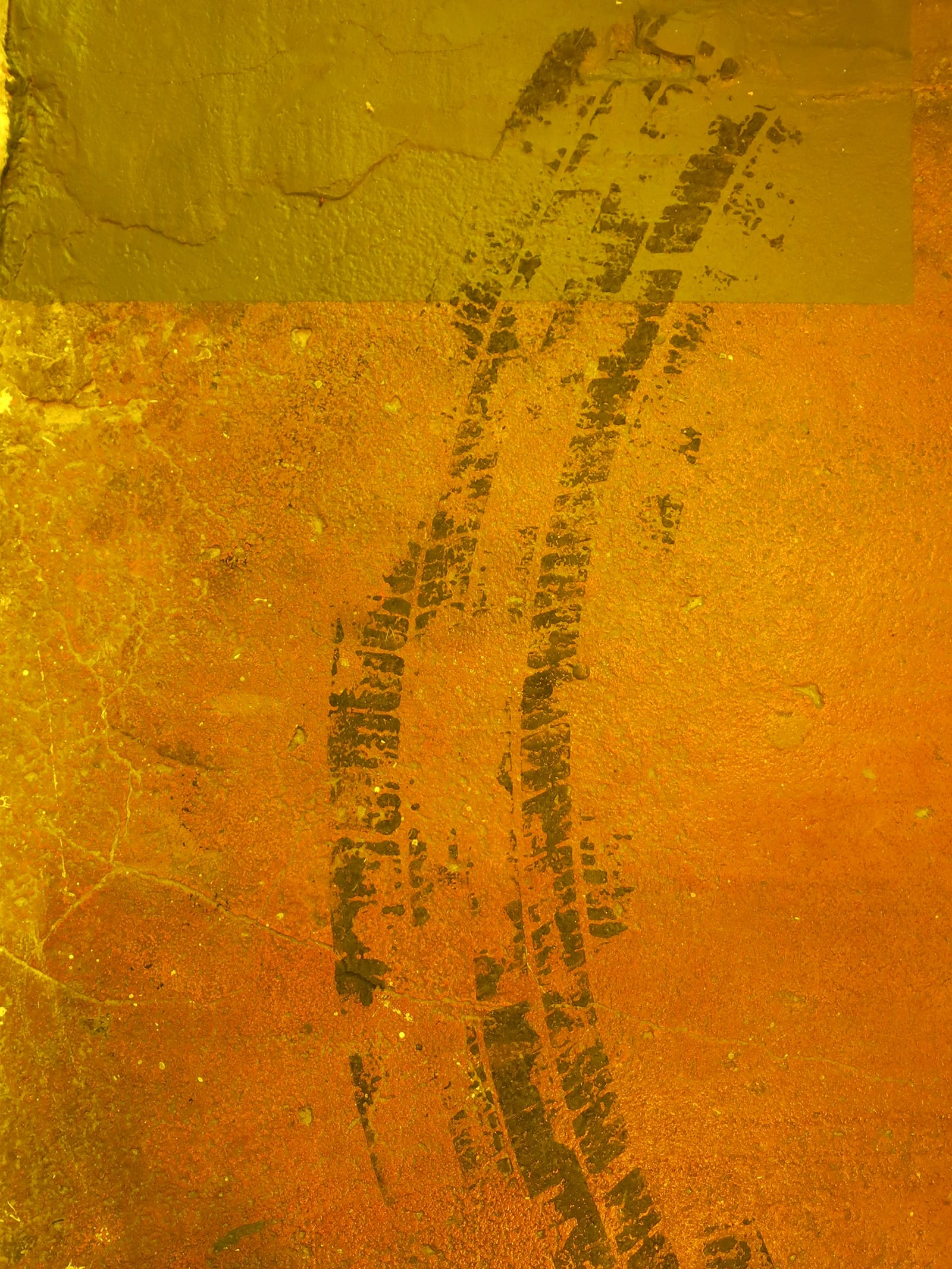 Installation view
Installation view
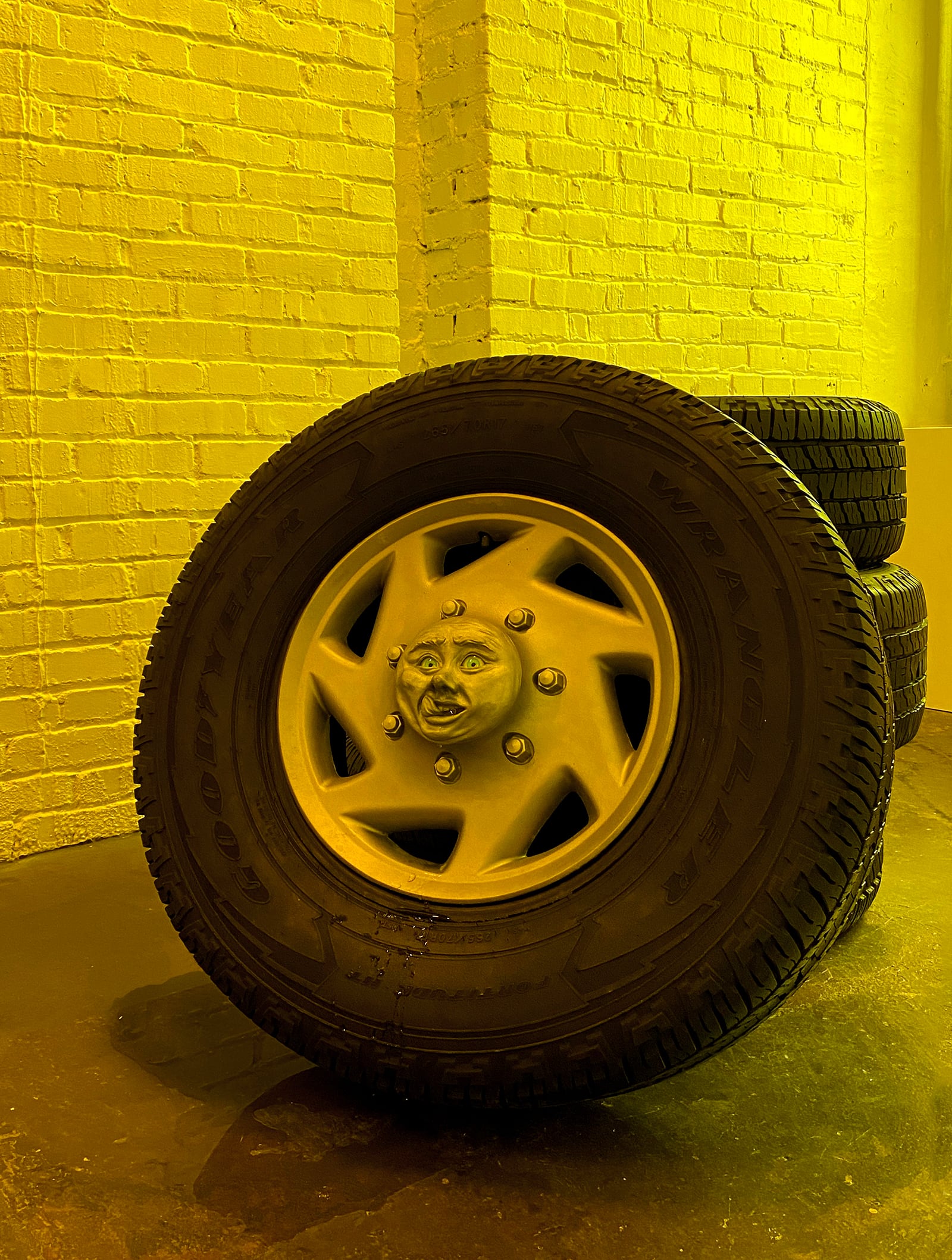 The Four Horsemen (Hungry), Cold-cast urethane, glass eyes, modified Goodyear Tire, cast and pigmented RTV rubber, tubing for water element, 2022
The Four Horsemen (Hungry), Cold-cast urethane, glass eyes, modified Goodyear Tire, cast and pigmented RTV rubber, tubing for water element, 2022
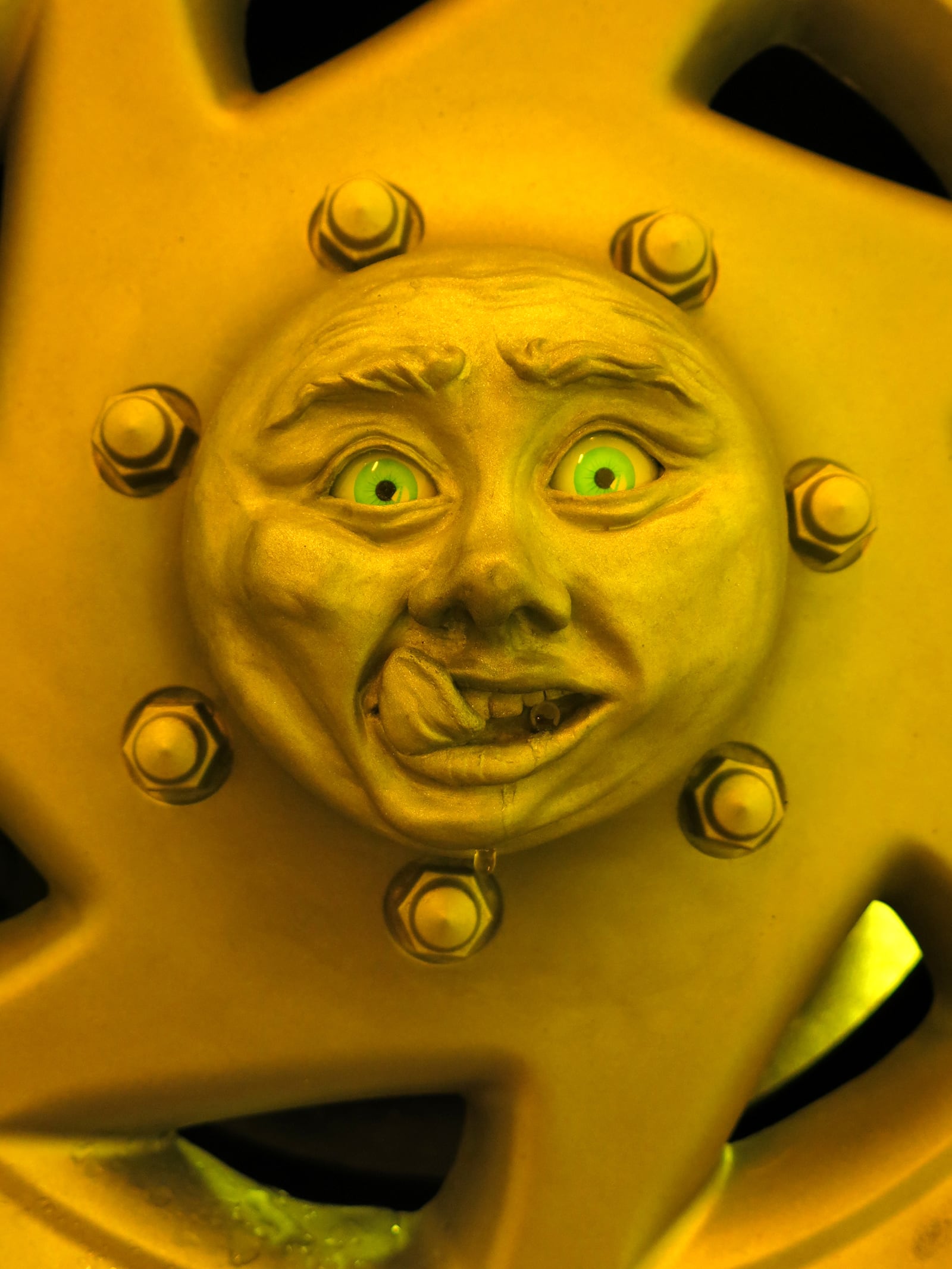 The Four Horsemen (Hungry) detail, Cold-cast urethane, glass eyes, modified Goodyear Tire, cast and pigmented RTV rubber, tubing for water element, 2022
The Four Horsemen (Hungry) detail, Cold-cast urethane, glass eyes, modified Goodyear Tire, cast and pigmented RTV rubber, tubing for water element, 2022
 The Four Horsemen (Tired) detail, Cold-cast urethane, glass eye, modified Goodyear Tire, cast and pigmented RTV rubber, 2022
The Four Horsemen (Tired) detail, Cold-cast urethane, glass eye, modified Goodyear Tire, cast and pigmented RTV rubber, 2022
.jpg) The Four Horsemen (Tired), Cold-cast urethane, glass eye, modified Goodyear Tire, cast and pigmented RTV rubber, 2022
The Four Horsemen (Tired), Cold-cast urethane, glass eye, modified Goodyear Tire, cast and pigmented RTV rubber, 2022
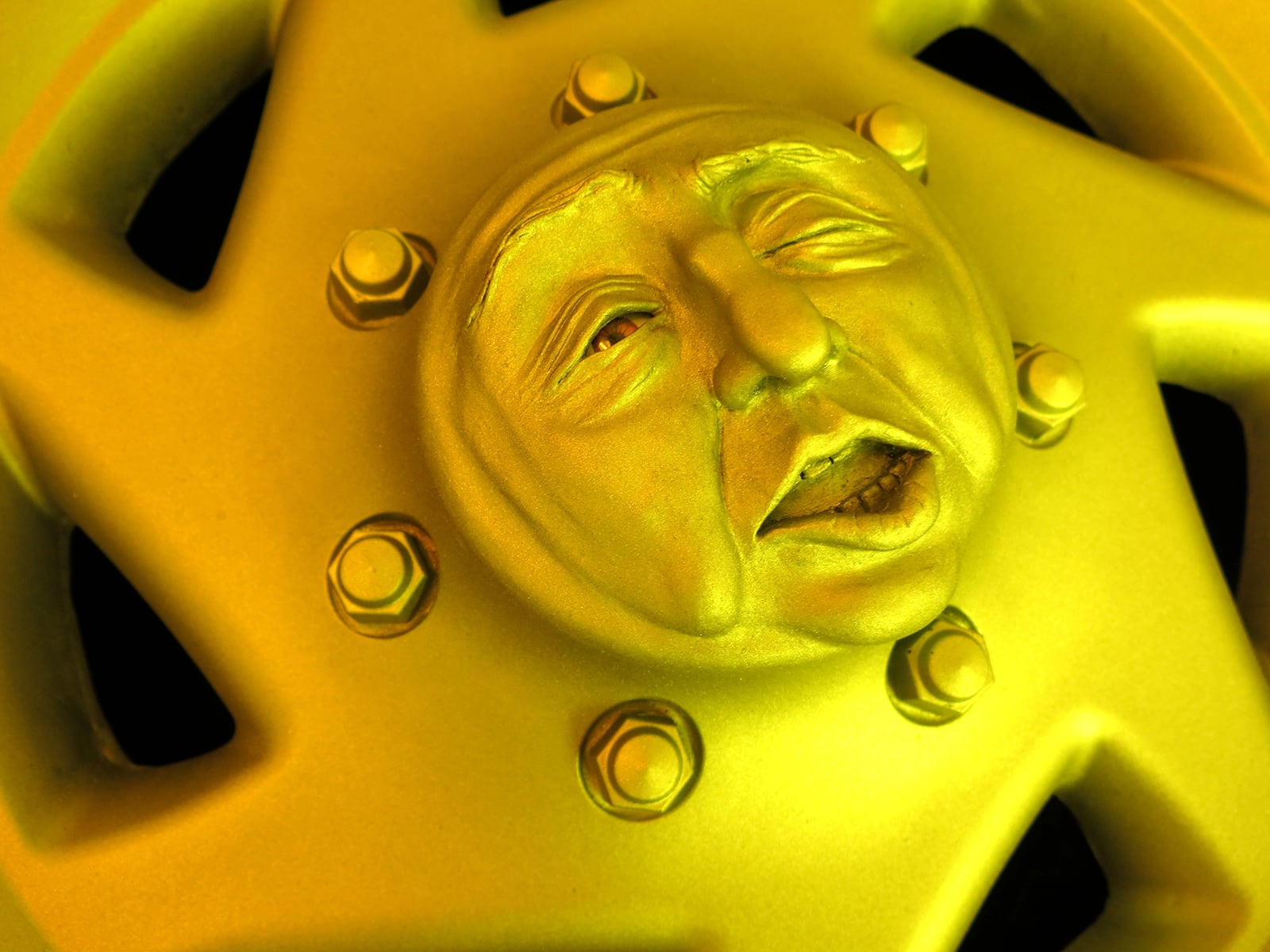 The Four Horsemen (Tired) detail 2, Cold-cast urethane, glass eye, modified Goodyear Tire, cast and pigmented RTV rubber, 2022
The Four Horsemen (Tired) detail 2, Cold-cast urethane, glass eye, modified Goodyear Tire, cast and pigmented RTV rubber, 2022
In 1509, the Dutch philosopher and catholic theologian Desiderius Erasmus Roterodamus, commonly known as Erasmus of Rotterdam, wrote In Praise of Folly. A satirical essay written in the voice of Folly—a self-aggrandizing fool who celebrates hedonism, ignorance, madness, and self-deception—his screed railed against the corruption of the Catholic church and the bloviated traditions of European society. In Praise of Folly became hugely popular and, to Erasmus’s dismay, its sharp criticism, intended to nudge the church towards reform, instead split the church and fueled the Protestant Reformation, spawning decades of the bloody religious wars that followed it. So much for the praising of folly.
In 2023, emerging from the shadow of the pandemic, we are confronted with a vision of a changed America. Time stopped, patterns were disrupted—people were paralyzed by fear, saturated in boredom, engulfed in loneliness, and traumatized by mass death. These disruptions led to increased acts of violence, descents into addiction, road rage and vehicular homicides, deaths of despair, and a new wave of anti-social behaviors. Santoro’s In Praise of Folly uses the self-diagnostic tool of addiction recovery treatment, HALT (Hungry, Angry, Lonely, Tired), to explore post-lockdown social disengagement. HALT is intended to help those struggling with addiction identify their triggers and meet their basic needs. Here, each emotion/need is interpreted as an animistic hubcap encapsulated in modified tires. Referred to in the title as “The Four Horsemen,” these characters drool, seethe, weep, and doze off, cartoonishly exaggerating their troubled states. Overhead, amber fluorescent lights glow, casting a pall over the room, like the foreboding yellow sky that signals a coming storm.
Santoro’s horsemen are discarded parts from a car, a machine which runs not on horsepower, but on bodily and emotional neglect; a societal death drive, speeding through broken social systems towards self-destruction. Rage, addiction, destruction, radicalization, conspiracy, violence, self-harm—we have become a culture of madness, of folly. Erasmus ends In Praise of Folly with this: “No Man is wise at all Times, or is without his blind Side." In a world built on folly, we are all the Fool.